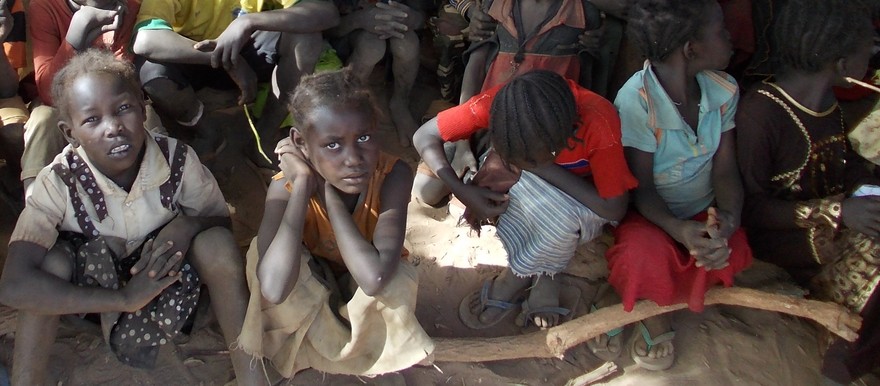Children living behind rebel lines in Nuba Mountains face not only the challenge of hunger but also the change from an Arabic-language curriculum to an English-language one. Refugees who crossed lines from government areas to SPLM-N areas as well as those living in newly captured areas have seen the new curriculum imposed on their children in lieu of the standard Sudan one.
Jumaa Ahmed Al Dom, education representative in Mendi Area of Heiban Locality, says that education in Nuba Mountains is facing a difficult moment after the change of curriculum from the old Sudan one to the New Sudan curriculum.
In an interview aired Saturday on Radio Tamazuj’s ‘Topic of the Day’ programme, the official acknowledged that the change of curriculum has affected many children who were using the old Sudan curriculum, even setting back some pupils who were ready to take their exams in the old Sudan curriculum before the war broke out last June.
“Education in Mendi in Heiban in Nuba Mountains faces a difficult moment after the change of curriculum, because students before the capture of Mendi were using the old Sudan curriculum,” said Jumaa from rebel-held territory.
Those who were almost finishing their primary and secondary education in Kadugli and other government areas have had to start their studies afresh in the new Sudan curriculum if they crossed to ‘liberated areas’, reported Jumaa.
But the official defended the policy as something which will give the country a fresh start. Jumaa calls the old Sudan curriculum ‘a problem in itself’ whereas the new curriculum is meant to build up the generation.
“If you want to change the system, you have to start with the curriculum,” he says.
He elaborated that the SPLM-N leadership decided to change the curriculum after looking at the weaknesses of the old Sudan curriculum. “We consulted the citizens on the matter and they gave us the okay to change the curriculum,” he adds.
Other problems
Education in Mendi area is also troubled by lack of teacher pay, aerial attacks by government warplanes, and shortages of books and other materials.
According to Jumaa the destitution of the Nuba makes it difficult for them to pay school fees. “Teachers are not getting any pay because of the difficult condition in which the citizens live, and this creates a problem in the education system,” he said.
He adds that his office lacks enough scholastic materials since Mendi is hosting a huge number of displaced children.
Sudan Armed Forces (SAF) bombardments of the Mendi area have also added to the problems facing education. “We have lost many students and many were injured during the SAF bombardment in the area because the children could not run to hide themselves,” he says
He calls on the international community to come and protect the children from the bombardment, questioning whether the Nuba people are not part of this world, that their children are subjected to such conditions.
He condemned the SAF action of bombing school children and called it an act against humanity.
Photo by Radio Tamazuj: Nuba refugee children at school in Yida Camp, April 2012.




